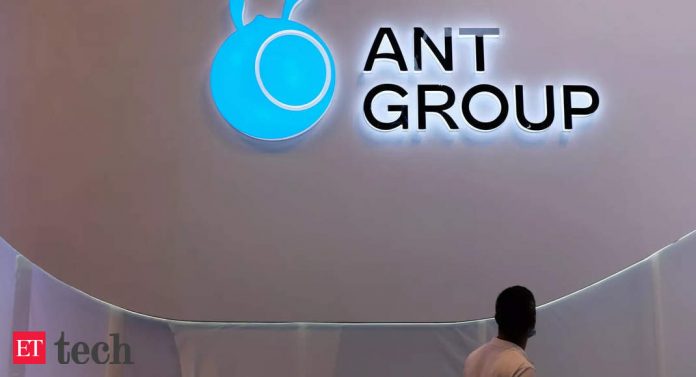There are also no signs that Ant’s botched mega IPO will be revived anytime soon, sources familiar with the matter said.
US private equity firm Warburg, which was a big investor in Ant’s 2018 private fundraising, lowered the company’s valuation to $191 billion at end-September from the $224 billion at end-June, the first source told Reuters.
Warburg’s cutting of Ant’s worth comes after some other global investors have already slashed their valuations and shows scepticism about its prospects is rising as the payments-to-loans behemoth remodels itself under regulatory pressure.
The valuation markdowns will weigh on the returns of the global investors who were betting on Ant’s once turbo-charged growth.
Warburg’s latest valuation of Ant, an affiliate of Alibaba Group, is far short of $315 billion that was touted one year ago at its planned IPO, which would have been the world’s largest if it were not derailed at the last minute.
The private equity heavyweight changed its valuation methodology for the company, citing “regulatory developments and the impact of ongoing restructuring”, said the source, without elaborating.
Ant and Warburg declined to comment. The sources declined to be identified as they were not authorised to speak to media.
Ant’s $37 billion IPO was called off by regulators two days before its scheduled dual-listing in Hong Kong and Shanghai, leaving investors guessing about their return prospects.
Since the IPO’s cancellation, Ant, controlled by Alibaba’s billionaire founder Jack Ma, has embarked on a restructuring plan that would see itself become a financial holding company. It is also shrinking its once-booming consumer credit business, opening its data trove to other firms, and faces new regulations in its payments and insurance businesses.
IPO prospects
In the first half of the year, Ant generated revenue of about $16.9 billion, up 52% year-on-year and $4.9 billion in adjusted net profit, up 29% year-on-year, according to a latest financial document prepared by an investor and seen by Reuters.
According to Alibaba’s September quarterly financial earnings report, Ant’s profit was $5.2 billion in the first half, up 43% year-on-year. Alibaba said the increase was mainly due to net gains from fair value changes in Ant’s investments.
Similar to Warburg, a string of other Ant investors have cut their valuations of the company since the start of the year.
Fidelity, an Ant investor that joined in the same round as Warburg, valued it at $68 billion at end-July, Reuters calculations based on its public disclosures showed. In January, it valued Ant at $233 billion.
In June, Bernstein analysts cut Ant’s valuation to $120 billion from the time of its IPO, due to slower growth expectations and lowered price-to-earnings multiples as a result of the regulatory changes.
The company was valued at $150 billion in its 2018 fundraising that attracted a slew of prominent global investors.
Ant investors don’t have high hopes that the company’s IPO will revive any time soon, as it is still in the middle of a complicated restructuring process that requires regulatory approvals on many fronts, said four other people.
“I would be surprised if Ant could finish its restructuring and revive its IPO by end of 2022,” said one investor source.
Ant declined to comment on the restructuring process and the IPO revival plans.

























